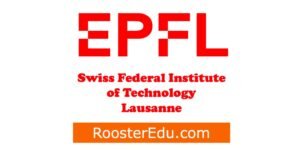Are you a Master’s graduate looking for fully funded PhD opportunities? Explore the range of funded PhD programs available at the Karolinska Institutet, Solna, Sweden. Apply online now and kickstart your doctoral journey!
1. Fully Funded PhD Position in Functional Genomics/Regulatory Transcriptomics
Summary of PhD Program:
The research group of Dr Claudia Kutter opens a doctoral (PhD) student position (computational/experimental) in the field of RNA biology, functional genomics and regulatory transcriptomics. The Kutter lab is at the forefront in deciphering molecular mechanism by which RNAs (i.e. long noncoding, transfer and small RNA) regulate genes and genome structure in both health and diseases (Sommerauer et al. MSB 2024, Geng et al. LSA 2024, Geng et al. Genome Research 2022, Søndergaard et al. Gut, 2022, Gao et al. Genome Research 2022). The successful candidate will be part of a multidisciplinary and collaborative research team active within the fields of chromatin and RNA biology, genomics and transcriptomics, and CRISPR technologies. Frequent courses are provided on campus. Additional professional training is available through PhD courses, summer schools and workshops.
Application Deadline: 30.Aug.2024
2. Fully Funded PhD Position in oral-systemic health research
Summary of PhD Program:
The research group within the Division of Oral Health and Periodontology, Department of Dental Medicine, conducts translational research focusing on novel disease mechanisms related to systemic disorders and oral diseases. We specifically focus on the inflammatory pathogenesis of periodontal diseases, microbial etiology of common oral diseases exploration of the oral microbiome, inter-connection between oral and general health. Our goal is to perform cutting-edge research in oral health, to optimize prevention, diagnosis, and treatment of common oral diseases, and contribute to the overall well-being.
Application Deadline: 25.Aug.2024
Follow us for regular updates
3. Fully Funded PhD Position in computational analysis of and/or development of single-cell/spatial transcriptomics/epigenomics technologies
Summary of PhD Program:
Our research group has performed single-cell/spatial omics studies, identifying for instance several cell states within the oligodendrocyte lineage in development and disease (Science 2016, Dev Cell 2018, 2022, Nature Medicine 2018, Nature 2019, 2023 Nature Biotechnology 2021, 2022, Neuron 2022, Cell 2024,among others). Our recent findings suggest that oligodendrocyte lineage cells might present other functional properties than previously thought, transitioning for instance to disease-associated states. The PhD student projects will focus on the development and/or computational analysis of spatial transcriptomic and epigenomic technologies, and application to multiple sclerosis. The successful candidate(s) will be integrated in a multidisciplinary team comprising computational, molecular and cellular biologists and neuroimmunologists.
Application Deadline: 16.Aug.2024
4. Fully Funded PhD Position in computational developmental biology and stem cell research
Summary of PhD Program:
The PhD project will aim at integrating single cell clonal, spatial and dissociated cell transcriptomics data for 3D neurodevelopmental reconstruction using a machine learning approach and beyond. Combo of single cell and spatial transcriptomics adds a critical layer of information by mapping gene expression patterns to specific locations within the nervous tissue, revealing how cells interact within their microenvironment. Single cell clonal data tracks the lineage relationships between cells, providing insight into the clonal evolution of neural cells during development and regeneration. This clonal data is crucial for identifying progenitor cells and understanding their role in generating the diverse cell types.
Application Deadline: 15.Aug.2024
5. Fully Funded PhD Position in DNA Tools for Spatial Biology
Summary of PhD Program:
This project is financed by a an ERC Advanced Grant to Björn Högberg with the aim to generate images of RNA distributions in tissue using methods that have become known as DNA Microcsopy. The principle is that by letting barcoded strands of DNA (for example cDNA) interact and concatenate in-situ, it is possible to generate adjacency information from sequence alone, independent from optical microscopy. This adjacency or neighbor-neighbor information can be used generate images in a computer. Today one person can routinely read millions of sequences on a weekly basis. And likely soon, we will be able to read billions of sequences daily in small labs. This outlook together with future increases in power of computational methods will then enable us, and others, to learn the inner secrets of biological system at a significantly faster rate.
Application Deadline: 04.Aug.2024
6. Fully Funded PhD Position in establish cell therapy for Diabetes, within National ATMP school
Summary of PhD Program:
The Lanner lab uses embryonic stem cells to both model early human embryo development and develop cell therapies. We have developed a protocol to produce retinal cells for the treatment of blindness that we hope to test clinically in the near future. The lab has also made great strides in producing highly functional insulin-producing cells for future treatment of diabetes. In this project, the student will further develop and GMP adapt this protocol, and finally evaluate the cells in animal models.
Application Deadline: 02.Aug.2024
Looking for more Funded Phd Position
7. Fully Funded PhD Position in Characterization of Mycobacteria host-pathogen interactions using multi-omics approaches
Summary of PhD Program:
The Fossati lab (https://fossatilab.app) investigates bacterial immune systems composition and mechanism by employing a combination of bulk NGS technologies and high-throughput interaction proteomics approaches (Fossati et al. 2023, Nat Com) as well as developing computational solutions to analyze next-generation interaction proteomics datasets using machine learning (Fossati et al. 2021, Nat Methods) and deep learning (Frommelt and Fossati et al, Nat Methods 2024).
Application Deadline: 20.Jul.2024
8. Fully Funded PhD Position in genetics
Summary of PhD Program:
Our vision is to use human genetics to understand how our evolutionary history impacts health and disease. We do so by leveraging large-scale biobanks, omics data and experimental techniques in our wet-lab. We are interested in the gene flow from Neandertals and Denisovans into modern humans and the genetic legacy of archaic gene variants. In addition, the group is interested in genetic variability in general and the functional consequences thereof, particularly for membrane-bound proteins such as receptors and ion channels. Other topics of interest include the genetic predisposition to infectious diseases, such as COVID-19.
Application Deadline: 19.Jul.2024
9. Fully Funded PhD Position in Endocrine Surgery
Summary of PhD Program:
The project aims to explore the mechanisms through which PTH affects skeletal muscle function, regeneration, and metabolism to increase knowledge about how PTH and PTHrh stimulation of PTH receptors may be involved in muscle wasting. The ultimate goal of the project is to better identify patients with primary hyperparathyroidism (pHPT) who will benefit from parathyroid surgery. We also hope to enhance the understanding of the interaction between parathyroid hormone, calcium, and fundamental intracellular processes in skeletal muscle.
Application Deadline: 18.Jul.2024
10. Fully Funded PhD Position in Mucosal Immunology and Intestinal Diseases
Summary of PhD Program:
The aim of the PhD project is to characterize the cell circuit of the colonic tissue from healthy, IBD, and colorectal (CRC) patients, as well as in experimental models of colitis and CRC. This will be done using established methodologies, like multiplex staining platforms and novel, non-commercially available Spatial metaTranscriptomics (SmT) for the identification of the host and microbiome signal in situ (SmT; Saarenpää S., et al., BioRxiv, 2022). The study plan will be establishing a spatial transcriptomic reference atlases of healthy and diseases intestinal tissues and functional characterize host-microbiome interactions involved in health and diseases.
Application Deadline: 15.Jul.2024



